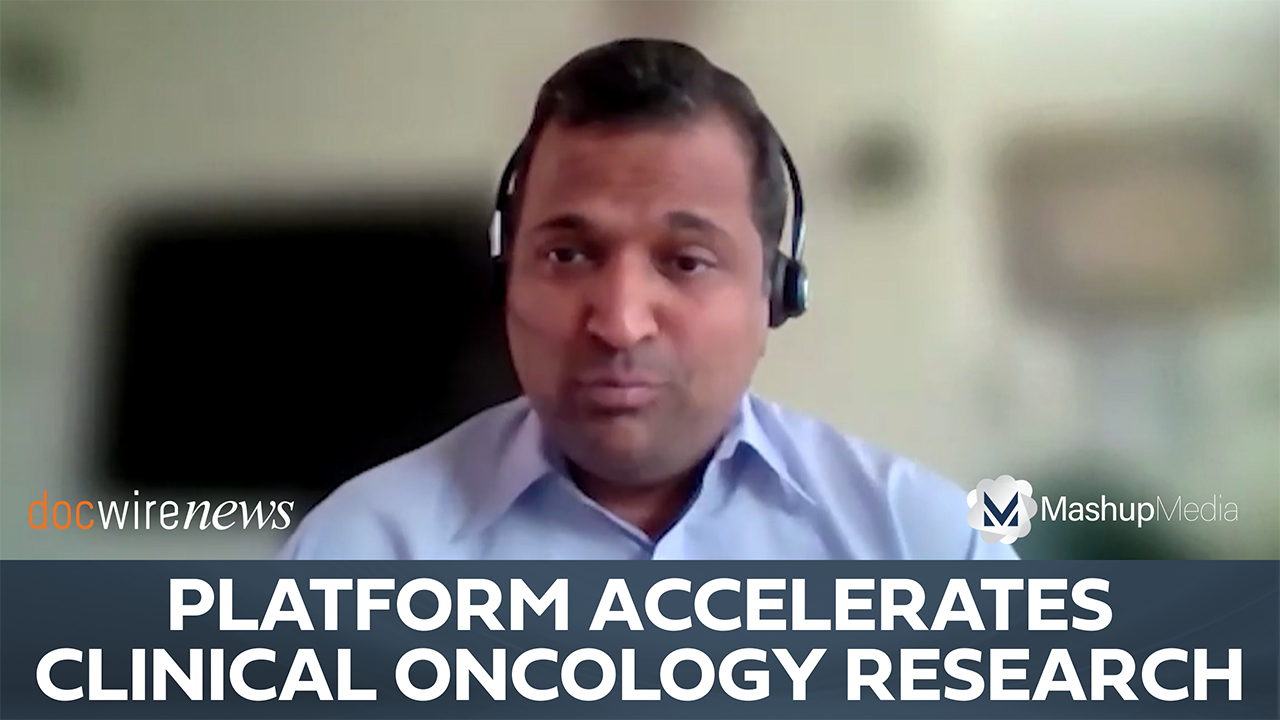Dr. Rajarshi Banerjee, CEO, Perspectum: Advanced Imaging Solutions to Enhance Precision Health
By Rob Dillard - Last Updated: August 1, 2023Perspectum is a company that makes novel technologies which enable the delivery of precision medicine to enhance patient outcomes, and improve therapy pathways. They developed a quick and seamless scan that accurately assesses six organs at once, including the heart, lungs, kidneys, liver, spleen, and pancreas.
DocWire News spoke with Dr. Rajarshi (Banjo) Banerjee, CEO of Perspectum, to learn more about his innovative company and the strides they are making in advancing precision health.
DocWire News: Can you start off by giving us some background information on yourself?
Sure. My name’s Rajarshi Banerjee or Banjo. I trained as a doctor here in the UK and founded Perspectum just under 10 years ago. We are now a company of almost 300 people with the best tests for liver disease to determine whether or not you have liver disease, whether you have normal bowel ducts, and whether or not you need further investigation and/or treatment for either parenchymal or bowel duct liver disease.
Talk to us about Perspectum – why and when you founded it, and about the company’s mission and value proposition.
Perspectum was founded from the University of Oxford in 2012 with the mission of developing diagnostic support software to improve healthcare outcomes. For example, you have a scan. The scan can determine some of the things that’s wrong with you. But actually, if you apply computer vision to that same scan, we can find out so much more about you, much faster and in much richer detail. But someone’s going to make that software. Someone’s got to get that software cleared by the regulators and then make it accessible to patients. That clearly was not going to be a university, which is why we founded a company.
The FDA recently granted clearance to CoverScan – talk to us about this software suite, and its importance.
Yeah. CoverScan is really important because it’s bringing holistic medicine to patients. Let’s say you are breathless, Rob. There are many different causes of breathlessness. You may have a problem in your lungs. You may have a problem in your heart. You may have a problem of anxiety. But to work out which one of those it is requires you, often, to see different specialties. You may need to see your cardiologist to make sure that your heart’s working okay. He or she will send you for a scan of your heart to determine if it’s ejection fraction is normal. That’s the measurement of pumping function. Then, if they say that your heart’s okay, they’ll send you to a pulmonologist. The pulmonologist will send you for a scan of your lungs to see if your lungs are okay. Is there any lung fibrosis? Have you got abnormally reduced lung volumes? If they’re okay, they’ll say, “Well, Rob. That’s fine. Maybe it’s all in your head, at which point they’ll send you to a clinical psychologist.
But my point is before you see a clinical psychologist, you’ve had to see two doctors and have two different diagnostic tests. CoverScan deals with all of that in one scan. We look at your heart function, your lung function, your kidneys, your liver, your pancreas all in one go. We can determine for a symptom like breathlessness or fatigue, which affects lots of people and may have several causes, which specialists to go to, if any.
What other platform-based products does Perspectum have, and what are they used for?
We have LiverMultiScan, which is the market leading diagnostic product or service, I should say, for parenchymal liver disease. It’s just been included in the American Association of Clinical Endocrinology and the American Gastroenterology Association guidelines. I wish some of the society names were shorter, don’t you? That’s a huge plus for us as a service company trying to build out our US offering. These products have their own CPT codes and premium reimbursement from Medicare as well.
What’s the biggest challenge the company is looking to solve?
The biggest challenge for us is, historically, medicine has always been done when it comes to assessing tissue with biopsies/with needles. In Boston, in one of the big hospitals there, there’s a big mural on the wall outside the pathology department which says, “Tissue is the issue,” as in, you can’t really make a diagnosis until you’ve got a bit of Rob in your hand or on a slide.
That’s fine. But as we progress from, I would say, 19th-century to 20th-century to 21st-century medicine, the fact that we can assess Rob’s liver tissue, his kidney tissue, his heart tissue noninvasively means it’s cheaper for the providers and payers but also safer for you. The complication rate from a liver biopsy is 2.4%. That’s a lot of people getting admitted to hospital or suffering severe pain from a diagnostic procedure. Doesn’t even make them better. Does that make sense? The biggest challenge for us is how do we help those patients. How do we remove the need for the needle by providing a good scan and a good scanning experience?
Any closing thoughts?
No. I just want to say that for people who are interested in the application of artificial intelligence to medicine, it’s a big evolving area. The Center for Medicaid Services has just opined on it. They referred to LiverMultiScan and MRCP+, and Perspectum as one of the vanguard sets of products that are really leading the way for software, as a service, to help patients. Applying AI and ways to pay for AI, and ways to deliver AI to hospitals is a really emerging theme. We are really proud to be part of that story, at least in the US.







 © 2025 Mashup Media, LLC, a Formedics Property. All Rights Reserved.
© 2025 Mashup Media, LLC, a Formedics Property. All Rights Reserved.